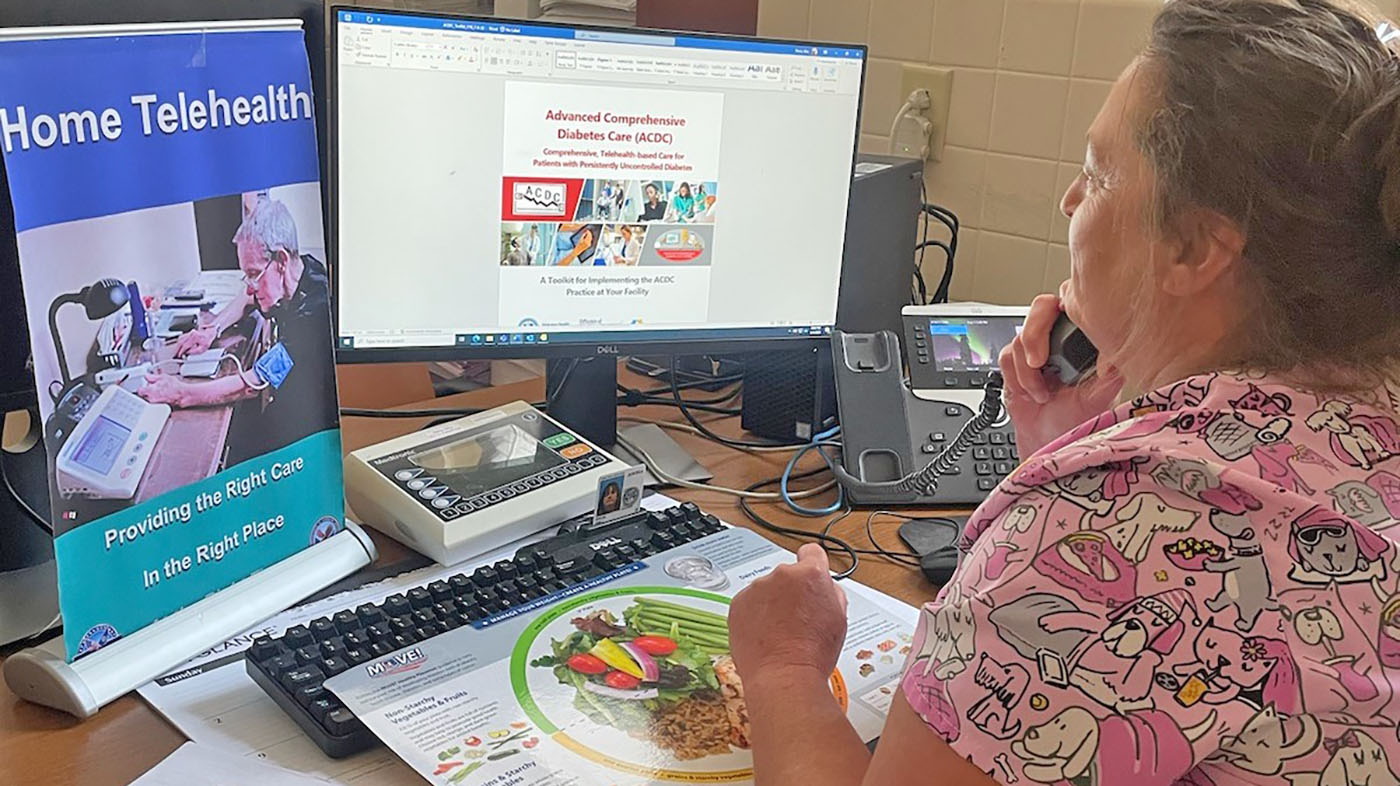For Veterans living with diabetes, self-management is essential to reducing the risk for hospitalizations and complications from heart disease, stroke, amputations and blindness.
Diabetes affects over 30 million Americans. Type 2 diabetes is when the body cannot effectively lower blood sugar levels, and is most common among these adults. Nearly 25% of Veterans who receive care from VA have diabetes, and VA is committed to improving their health outcomes.
For Veterans with hard-to-control diabetes, self-management can feel like a burden. This is especially true for Veterans in rural areas who may face challenges accessing care and self-management services.
Dr. Matt Crowley, endocrinologist at Durham VA, recognized that some Veterans with type 2 diabetes continued to show poor diabetes control despite clinic-based care.
“The clinic is not an ideal venue for providing diabetes care because diabetes imposes such a high burden of self-management tasks on our Veterans. Some just need more support than is possible in this setting,” Crowley said.
With a mission to connect Veterans to additional support services, Crowley created Advanced Comprehensive Diabetes Care (ACDC). The program provides critical access to diabetes self-management and medication support through Home Telehealth services.
Pictured above, Kim Davis, home telehealth nurse at Dublin VA, delivers ACDC to a Veteran with diabetes.
Advancing diabetes care
VA is leading the way in improving access to care using telehealth innovation for diabetes management. This access to care improves Veteran health outcomes. Following this strategy, in 2013, Crowley and his team collaborated with the VA Telehealth At Home program to design and pilot ACDC at Durham VA.
ACDC is uniquely designed to enhance standard home telehealth services and support Veterans with hard-to-control diabetes with three key components: telemonitoring, self-management support and specialist-guided medication management. The program is delivered over six months using existing VA clinical staff and equipment.
Initial data collected through a trial from 2014-2015 proved the ACDC pilot a success. ACDC improved hemoglobin A1c (a measure of blood sugar levels) by 1.3% for Veterans compared to clinic-based care and standard home telehealth diabetes services.
In 2017, the ACDC team collaborated with the VA Office of Rural Health to further develop the program. With a drive to expand to other VA facilities, the team entered ACDC in the 2018 Diffusion of Excellence VHA Shark Tank Competition, and the practice was selected as a winner to replicate to VA Montana.
Reaching across VA
After successfully implementing the practice at Fort Harrison VA in Montana, the team continued to expand the practice across VA. As of 2023, the ACDC team has implemented their innovation in 30 sites, reaching over 700 Veterans with hard-to-control type 2 diabetes.
“Veterans appreciate the way ACDC is delivered,” said Tiffany Beaver, Office of Rural Health ACDC project coordinator, noting how Veterans report high satisfaction with the program.
With support from the Dynamic Diffusion Network QUERI Program, the team is evaluating implementation support strategies to promote uptake of practices, including ACDC, at later adopting sites.
The team hopes to expand ACDC to all VA facilities. “ACDC improves health outcomes for Veterans with diabetes,” said Crowley. “There is a need for programs like ACDC to be implemented across the country.” To learn more about ACDC and where they are implemented, explore their page on Diffusion Marketplace. If you are a Veteran looking to learn more about VA diabetes care services, contact your VA primary care provider.
Topics in this story
More Stories
Columbia VA’s robotic surgery teams completed their 800th robotic surgery and are on schedule to hit 1,000 by the end of the year.
In a decentralized clinical trial, Veterans can participate from their own homes or local VA instead of having to travel to a research site.
After serving in the Air Force for 25 years, Larry Wilson is now a My HealtheVet coordinator helping Veterans navigate their care.







